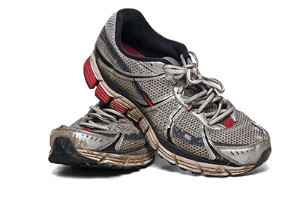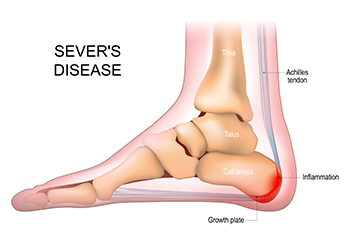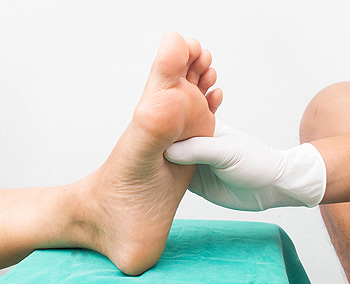Items filtered by date: January 2024
Ankle Injuries in Football

Engaging in the exhilarating sport of football comes with its share of risks, and one of the most prevalent concerns is the susceptibility to ankle injuries. The dynamic nature of the game, involving sudden stops, sharp turns, and high-impact collisions, puts players at an increased risk of sprains and strains. Ankle sprains, resulting from the ligaments being stretched beyond their limits, are a common injury, causing pain, swelling, and instability. Fractures also may occur during forceful tackles or awkward landings, demanding immediate attention for proper healing. Achilles tendon injuries, though less frequent, can sideline players with intense pain along the back of the ankle. Preventive measures, such as proper warm-ups, strengthening exercises, and wearing supportive footwear, are critical in decreasing the risk of ankle injuries. Football enthusiasts must prioritize their ankle health, and it is suggested that you consult a podiatrist who can guide you to developing and maintaining strong feet and ankles.
Sports related foot and ankle injuries require proper treatment before players can go back to their regular routines. For more information, contact Dr. Mark Gagnon of Advanced Podiatry. Our doctor can provide the care you need to keep you pain-free and on your feet.
Sports Related Foot and Ankle Injuries
Foot and ankle injuries are a common occurrence when it comes to athletes of any sport. While many athletes dismiss the initial aches and pains, the truth is that ignoring potential foot and ankle injuries can lead to serious problems. As athletes continue to place pressure and strain the area further, a mild injury can turn into something as serious as a rupture and may lead to a permanent disability. There are many factors that contribute to sports related foot and ankle injuries, which include failure to warm up properly, not providing support or wearing bad footwear. Common injuries and conditions athletes face, including:
- Plantar Fasciitis
- Plantar Fasciosis
- Achilles Tendinitis
- Achilles Tendon Rupture
- Ankle Sprains
Sports related injuries are commonly treated using the RICE method. This includes rest, applying ice to the injured area, compression and elevating the ankle. More serious sprains and injuries may require surgery, which could include arthroscopic and reconstructive surgery. Rehabilitation and therapy may also be required in order to get any recovering athlete to become fully functional again. Any unusual aches and pains an athlete sustains must be evaluated by a licensed, reputable medical professional.
If you have any questions please feel free to contact one of our offices located in Crestwood, Orland Park, and Summit, IL . We offer the newest diagnostic and treatment technologies for all your foot and ankle needs.
Choosing Correct Running Shoes

Selecting the right running shoes is essential for seasoned athletes and beginners embarking on a fitness journey. Start by understanding your foot type, whether you have a neutral arch, high arch, or flat feet. This knowledge will guide you toward shoes that offer the appropriate support and stability. Consider the terrain you'll be running on, as different shoes cater to road running, trail running, or a mix of both. Pay attention to the cushioning, as it directly impacts shock absorption during each stride. Ensure a proper fit by trying on shoes in the evening when your feet may be slightly swollen. Check for ample toe room and a snug heel fit to prevent blisters. Lastly, consider your running style and any specific foot conditions. Investing time in choosing the right pair of shoes enhances performance and minimizes the risk of injuries. If you are seeking additional information about how to choose the right running shoe, it is suggested that you consult a podiatrist who can provide you with the knowledge you are seeking.
If you are a runner, wearing the right running shoe is essential. For more information, contact Dr. Mark Gagnon from Advanced Podiatry. Our doctor can provide the care you need to keep you pain-free and on your feet.
Choosing the Right Running Shoe for Your Foot Type
To increase performance and avoid the risk of injury, it is important to choose the right running shoe based on your foot type. The general design of running shoes revolves around pronation, which is how the ankle rolls from outside to inside when the foot strikes the ground.
- Neutral runners are able to choose from a wide variety of shoes, including minimalist shoes or even going barefoot.
- Runners who overpronate, or experience an over-abundance of ankle rolling, should choose shoes that provide extra motion control and stability.
- Runners who underpronate, or supinate, have feet that have high arches and lack flexibility, preventing shock absorption. They require shoes with more flexibility and cushion.
If you have any questions please feel free to contact one of our offices located in Crestwood, Orland Park, and Summit, IL . We offer the newest diagnostic and treatment technologies for all your foot and ankle needs.
What Causes Sever’s Disease?

Sever's disease, a common heel condition affecting active children, stems from specific factors that influence the growth plate at the back of the heel. This condition primarily arises during the growth spurts of adolescence when the heel bone, or calcaneus, grows faster than the Achilles tendon. The Achilles tendon, responsible for connecting the calf muscles to the heel, becomes tight and exerts increased tension on the heel's growth plate. Simultaneously, vigorous physical activities, especially those involving running or jumping, exacerbate the stress on the growth plate, triggering inflammation and pain. Factors like improper footwear or engaging in sports on hard surfaces can contribute to the development of Sever's disease. If your active child has heel pain, it is strongly suggested that you consult a podiatrist who can successfully treat Sever’s disease.
Sever's disease often occurs in children and teens. If your child is experiencing foot or ankle pain, see Dr. Mark Gagnon from Advanced Podiatry. Our doctor can treat your child’s foot and ankle needs.
Sever’s Disease
Sever’s disease is also known as calcaneal apophysitis, which is a medical condition that causes heel pain I none or both feet. The disease is known to affect children between the ages of 8 and 14.
Sever’s disease occurs when part of the child’s heel known as the growth plate (calcaneal epiphysis) is attached to the Achilles tendon. This area can suffer injury when the muscles and tendons of the growing foot do not keep pace with bone growth. Therefore, the constant pain which one experiences at the back of the heel will make the child unable to put any weight on the heel. The child is then forced to walk on their toes.
Symptoms
Acute pain – Pain associated with Sever’s disease is usually felt in the heel when the child engages in physical activity such as walking, jumping and or running.
Highly active – Children who are very active are among the most susceptible in experiencing Sever’s disease, because of the stress and tension placed on their feet.
If you have any questions, please feel free to contact one of our offices located in Crestwood, Orland Park, and Summit, IL . We offer the newest diagnostic and treatment technologies for all your foot and ankle injuries.
Foot Symptoms and Their Significance for Prediabetic Patients

Prediabetes, a precursor to type two diabetes, often presents subtle yet important symptoms, and the feet can provide valuable insights into one's health. Individuals experiencing prediabetes may notice changes in their feet, such as tingling sensations or numbness, indicative of nerve damage associated with elevated blood sugar levels. Reduced blood flow to the feet is another symptom, leading to slower healing of wounds or infections. Additionally, individuals with prediabetes may encounter skin issues like dryness or discoloration on their feet. These symptoms underscore the importance of paying attention to foot health as an early indicator of potential metabolic imbalances. Recognizing these subtle signs allows for timely intervention, including lifestyle adjustments and monitoring blood sugar levels, to mitigate the progression to diabetes. If you have symptoms of prediabetes, it is suggested that you visit a podiatrist who can conduct regular foot exams, in addition to monitoring this serious condition.
Diabetic foot care is important in preventing foot ailments such as ulcers. If you are suffering from diabetes or have any other concerns about your feet, contact Dr. Mark Gagnon from Advanced Podiatry. Our doctor can provide the care you need to keep you pain-free and on your feet.
Diabetic Foot Care
Diabetes affects millions of people every year. The condition can damage blood vessels in many parts of the body, especially the feet. Because of this, taking care of your feet is essential if you have diabetes, and having a podiatrist help monitor your foot health is highly recommended.
The Importance of Caring for Your Feet
- Routinely inspect your feet for bruises or sores.
- Wear socks that fit your feet comfortably.
- Wear comfortable shoes that provide adequate support.
Patients with diabetes should have their doctor monitor their blood levels, as blood sugar levels play such a huge role in diabetic care. Monitoring these levels on a regular basis is highly advised.
It is always best to inform your healthcare professional of any concerns you may have regarding your feet, especially for diabetic patients. Early treatment and routine foot examinations are keys to maintaining proper health, especially because severe complications can arise if proper treatment is not applied.
If you have any questions please feel free to contact one of our offices located in Crestwood, Orland Park, and Summit, IL . We offer the newest diagnostic and treatment technologies for all your foot and ankle needs.
Dietary Guidelines for Gout Management

Gout, a form of arthritis caused by the accumulation of uric acid crystals in the joints, often the big toe, requires careful attention to dietary choices to manage symptoms effectively. A key principle is moderating the intake of purine rich foods, as purines contribute to elevated uric acid levels. Reducing the consumption of organ meats, seafood, and certain legumes can help mitigate the risk of gout attacks. Adequate hydration is essential, as it supports the elimination of uric acid through urine. Incorporating low fat dairy products, which have been associated with a lower risk of gout, can be beneficial. Additionally, maintaining a healthy weight is vital, as excess weight can contribute to higher uric acid levels. Fruits, vegetables, and whole grains are encouraged, as they provide essential nutrients without significantly impacting uric acid levels. If you have developed gout, it is strongly suggested that you are under the care of a podiatrist who can effectively treat this condition, and guide you toward healthy food choices.
Gout is a foot condition that requires certain treatment and care. If you are seeking treatment, contact Dr. Mark Gagnon from Advanced Podiatry. Our doctor will treat your foot and ankle needs.
What Is Gout?
Gout is a type of arthritis caused by a buildup of uric acid in the bloodstream. It often develops in the foot, especially the big toe area, although it can manifest in other parts of the body as well. Gout can make walking and standing very painful and is especially common in diabetics and the obese.
People typically get gout because of a poor diet. Genetic predisposition is also a factor. The children of parents who have had gout frequently have a chance of developing it themselves.
Gout can easily be identified by redness and inflammation of the big toe and the surrounding areas of the foot. Other symptoms include extreme fatigue, joint pain, and running high fevers. Sometimes corticosteroid drugs can be prescribed to treat gout, but the best way to combat this disease is to get more exercise and eat a better diet.
If you have any questions please feel free to contact one of our offices located in Crestwood, Orland Park, and Summit, IL . We offer the newest diagnostic and treatment technologies for all your foot and ankle needs.

